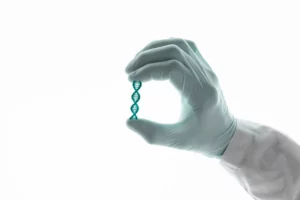 Chromosomal genetic disorders are a group of medical conditions caused by abnormalities in the structure or number of chromosomes.
Chromosomal genetic disorders are a group of medical conditions caused by abnormalities in the structure or number of chromosomes.
These disorders can have a profound impact on an individual’s health and development.
Today, we will explore chromosomal genetic disorders and discuss some common examples.
Understanding Chromosomal Disorders
Chromosomes are thread-like structures found in the nucleus of every cell, and they carry our genetic information. Normally, humans have 46 chromosomes – 23 pairs. However, in individuals with chromosomal genetic disorders, there can be extra, missing, or rearranged chromosomes, leading to health problems.
Types of Chromosomal Genetic Disorders
Chromosomal genetic disorders can be categorized into several types based on their specific chromosomal abnormalities:
1. Trisomy Disorders
Trisomy disorders occur when an individual has an extra copy of a particular chromosome. The most well-known trisomy disorder is Down syndrome (Trisomy 21), where there are three copies of chromosome 21 instead of the usual two. Down syndrome has symptoms like intellectual disability, distinctive facial features, and a higher risk of certain medical conditions.
2. Monosomy Disorders
Monosomy disorders involve the absence of one chromosome from a pair. Turner syndrome, for example, results from the absence of one of the X chromosomes in females. This disorder leads to short stature, infertility, and other health issues.
3. Structural Chromosome Abnormalities
In some cases, portions of chromosomes can be deleted, duplicated, or rearranged. An example is Cri-du-chat syndrome, where a piece of chromosome 5 is missing, leading to developmental delays and distinctive cat-like cries in affected infants.
4. Sex Chromosome Disorders
Sex chromosome disorders involve abnormalities in the X and Y chromosomes. Klinefelter syndrome (XXY), for instance, occurs in males who have an extra X chromosome. It can result in infertility and other physical and developmental challenges.
Common Examples of Chromosomal Disorders
Down Syndrome
As mentioned earlier, Down syndrome is one of the most common chromosomal disorders, characterized by intellectual disabilities and distinctive facial features.
Turner Syndrome
Turner syndrome affects females and results in short stature and fertility issues.
Klinefelter Syndrome
This disorder affects males and leads to developmental delays, reduced fertility, and physical differences.
Cri-du-chat Syndrome
The cri-du-chat syndrome results in intellectual disabilities and unique cries in affected infants.
Chromosomal genetic disorders can vary widely in their effects and severity. Advances in genetic testing and medical intervention have improved our ability to diagnose and manage these conditions, offering better support and care for individuals with chromosomal disorders and their families.
Picture Credit: Freepik
